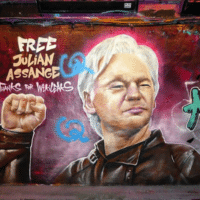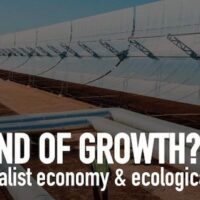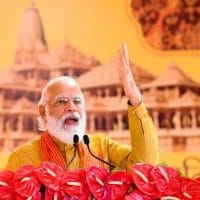-
From Guernica to Gaza
Raouf Halaby: “To say that I was awed is an understatement.”
-
We are Spartacus
Julian and David are Spartacus. The Palestinians are Spartacus. People who fill the streets with flags and principle and solidarity are Spartacus. We are all Spartacus if we want to be.
-
What took them so long? New York Times, Guardian finally call for Assange’s freedom
At long last, these publications have acknowledged that the material published by Assange was of vital public interest and importance, noting that what he released “disclosed corruption, diplomatic scandals and spy affairs on an international scale” and “decisions that cost the country most heavily in lives and money.”
-
How private corporations stole the sea from the Commons
For most of human history, the oceans have been seen as a global commons, the benefits and resources of which belong to us all in equal measure. But our seas–and the marine environment as a whole–are being ravaged by exploitation for corporate profit. The result is a social, economic and ecological crisis that threatens the very life support system of the Earth.
-
Beyond Eurocentrism
With the publication of Orientalism in 1978, Edward Said would become one of the most influential scholars of our era. The book transformed the study of the history of the modern world, as it offered insights into how racist discourses created and maintained European empires.
-
‘Indian Rivers are in ICUs, Drying up Fast’ — Waterman Rajendra Singh
“Twenty-one Indian cities are going to be waterless very soon,” Rajendra Singh tells me in an interview for NewsClick conducted last week in Delhi. Singh is alluding to a prediction in a Niti Aayog report on water. He says, “It means that the underground and surface water availability will become zero.” Another report says 72% of water reservoirs are in overdraft.
-
The end of growth? The capitalist economy & ecological crisis
Many ecologists, activists and academics argue that an obsession with economic growth is the cause of our current ecological crisis and a commitment to “degrowing” the economy is the solution.
-
Kerala scheme shows how to create work opportunities while caring for the environment
Environment and employment two fronts on which India has been besieged in recent years. Unemployment since 2011 has worsened in the aftermath of the COVID-19 lockdowns. About 100 million workers lost their jobs with women and the youth being more adversely impacted.
-
A place of hope in a time of spiralling crisis
South Africa has many moments in its long history of struggle that are recognised internationally as turning points. These include the Sharpeville massacre in 1960, the Soweto uprising in 1976 and Nelson Mandela’s release from prison in 1990.
-
Why neoliberalism needs neofascists
It has been four decades since neoliberal globalization began to reshape the world order. During this time, its agenda has decimated labor rights, imposed rigid limits on fiscal deficits, given massive tax breaks and bailouts to big capital, sacrificed local production for multinational supply chains, and privatized public sector assets at throwaway prices.
-
Pegasus: why the booming surveillance software industry is vulnerable to abuse; also: Snowden interview
The world’s most sophisticated commercially-available spyware may be being abused, according to an investigation by 17 media organisations in ten countries.
-
Karl Marx: March ye workers, and the World shall be free!
Exactly 203 years ago, Karl Marx was born in Trier, Germany, on May 5, 1818 to a family of converted Christians belonging to the line of Jewish Rabbis which ended with Moses Lwow, Trier Rabbi from 1764 to 1788.
-
Why the U.S. shouldn’t play games with cyberwarfare as its power declines
Two major cyberhacks—of ‘SolarWinds’ and ‘Microsoft Exchange Server’—have affected a whole range of computer systems worldwide. Both are supply chain hacks, meaning that they appeared to be routine software upgrades for particular components in these systems instead of inserted malicious codes.
-
When the powers that be are in contempt of the people
After decades, the issue of contempt has come alive. For this, we have to be grateful to Prashant Bhushan and the Supreme Court of India.














